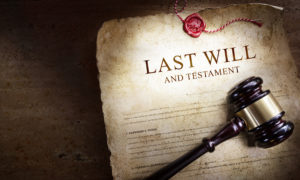
When people think about estate planning, many just think about their personal property and their children’s future. If you have a successful business, you may want to think about how it will continue after you retire or pass away. Business succession planning is critical because the value and success of the business will be greatly effected when you pass away. Planning now will help prevent interruptions to the business and preserve the value for your beneficiaries, and for your employees.
Forbes’ recent article entitled “Why Business Owners Should Think About Estate Planning Sooner Than Later” says that many business owners believe that business succession planning, estate planning and getting their affairs in order happens when they’re older. While that’s true for the most part, it’s only because that’s the stage of life when many people begin pondering their mortality and worrying about what will happen next or what will happen when they’re gone. The day-to-day concerns and running of a business is also more than enough to worry about, let alone adding one’s mortality to the worry list at the earlier stages in your life. Having been a business owner myself, I understand that the demands of the day seem so important, it’s hard to think about next week, let alone when you’re gone.
Business continuity is the biggest concern for entrepreneurs and one of the key components to address in business succession planning. This can be a touchy subject, both personally and professionally, so it’s better to have this addressed while you’re in charge. One option is to create a living trust and will to put in place parameters that a trustee can carry out. With these names and decisions in place, you’ll avoid a lot of stress and conflict for those you leave behind. You may do this as a trust solely for the business, such as a management trust, or as part of your regular estate planning.
They may be upset with you, but it’s better than the other or future owners and key employees being mad at each other. This will give them a higher probability of working things out amicably at your death. The smart move is to create a business succession plan that names successor trustees to be in charge of operating the business, if you become incapacitated or die.
Business succession planning may include several other aspects. For example, many owners complete buy sell agreements or similar documents that require a deceased owners estate to sell their interest to the other owners, or address what happens if an owner divorces, or becomes disabled. Some even address buy outs for retiring owners. It is also a good idea to consider employment agreements that entice key employees to stay with the company if you should retire or pass away. These documents can be complex as they touch many issues, but are worth discussing with your estate planning or business attorney as part of your business succession plan.
A power of attorney document will nominate a fiduciary agent to act on your behalf, if you become incapacitated, but you should also ask your estate planning attorney about creating a trust to provide for the seamless transition of your business at your death to your successor trustees. The transfer of the company to your trust will avoid the hassle of probate and will ensure that your business assets are passed on to your chosen beneficiaries. Timely planning will also preserve your business assets, as advanced tax planning strategies might be implemented to establish specific trusts to minimize the estate tax. See here for more details. https://galligan-law.com/how-do-trusts-work-in-your-estate-plan/
Business succession planning and estate planning may not be on tomorrow’s to do list for young entrepreneurs and business owners. Nonetheless, it’s vital to plan for all that life may bring, and is critical to prevent disruptions to the business you created.
Reference: Forbes (Dec. 30, 2019) “Why Business Owners Should Think About Estate Planning Sooner Than Later”
